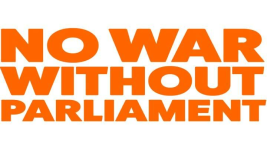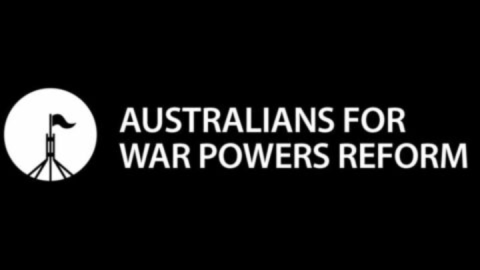Calls for PM to Keep Promise Regarding War Powers Reform

With a bill calling for change on how our nation enters an overseas conflict back on the Senate agenda for debate, Australians for War Powers Reform (AWPR) are calling on the Albanese government to follow through on its preelection promise to act on the issue.
The decision-making process as to whether Australia enters into a conflict being waged overseas is referred to as war powers.
Currently, this resides in the hands of the few ministers that comprise the National Security Committee of Cabinet and, ultimately, this boils down to a decision made by the prime minister.
The Defence Amendment (Parliamentary Approval of Overseas Service) Bill 2020 has recently been restored to parliament. Introduced by Greens Senator Jordon Steele-John, the legislation seeks to place the decision on whether to go to war overseas in the hands of the entire parliament.
As Steele-John told Sydney Criminal Lawyers soon after he first introduced the bill, the decisions to enter the wars in Iraq and Afghanistan reveal “that the executive has lost the ability to make the judgement call”, while opening it up to parliament engages the entire Australian constituency.
Power to the people
“We urge prime minister Albanese to look at this issue with an open mind and consider the legislation on its merits,” AWPR president Dr Alison Broinowski said in a 16 August statement.
“The new political landscape now includes a significant number of new independent MPs and senators who may wish to take the issue of war powers more seriously.”
Labor promised in April last year that if elected, it would establish a parliamentary inquiry into whether the power to send troops to foreign theatres of war should be a matter for both houses of parliament to vote on, rather than left in the hands of the few.
As yet, there has been no confirmation that the inquiry will be going ahead, while Labor has previously asserted that the Greens bill “leaves too many unanswered questions and may have unforeseen and unintended consequences”.
Yet, AWPR makes clear that Labor has failed to pinpoint what these consequences might be, and it further suggests that the government has the option to amend the Steele-John’s legislation, so it can resolve any of its concerns.
Rising tensions
The issue with war powers being reformed is similar to the reason why an integrity commission hasn’t been established at the federal level in the past: once one of a majors takes office, it resists making these changes as they would serve to lessen the power it holds in government.
Right now, the decision to enter into a foreign war is dependent on the nine ministers making up the National Security Committee: Albanese, Richard Marles, Penny Wong, Jim Chalmers, Chris Bowen, Mark Dreyfus, Clare O’Neil, Katy Gallagher and Pat Conroy.
Handing over war powers to parliament means both chambers would have to vote on the decision to send young Australians to war, and the public would be able to apply pressure on local MPs in terms of which decision they make.
Of course, a key concern for many Australians at present is the mounting talk of war on China, which the recent US visit to Taiwan has heightened.
And while Albanese is certainly not as gung-ho as Scott Morrison and Peter Dutton were, his government has continued to assert the China threat.
“At present, the prime minister can make the decision, often without even consulting his or her own cabinet,” Dr Broinowski warned.
“This means the most serious decision of all can be a “captain’s call’, left up to just one person. Surely in 2022, with threats of war mounting, that is no longer acceptable.”








